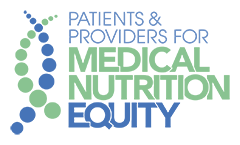As a pediatric gastroenterologist, I take care of children with diseases of the digestive tract. Medical nutrition is often the treatment of choice for certain conditions, such as eosinophilic esophagitis and inflammatory bowel disease. The use of nutrition as therapy is associated with less medication-related side effects and improved nutritional status. It has been shown that providers in the United States lag behind our European counterparts in the usage of medical nutrition therapy. This is despite the proven benefit and safety of these therapies in treating these conditions. This reluctance may be due, in part, to the difficulty we have encountered in obtaining insurance coverage for this treatment modality in the United States. Insurance denial is particularly frustrating in the case of a motivated child who intends to consume the prescribed nutrition by mouth but is told that he/she would require a feeding tube to have this therapy covered by insurance. This is also frustrating in the case of a family that is forced to pay for the prescribed nutrition out-of-pocket as they earn too much for Medicaid, and their private insurance company has declined to cover the cost. These situations are frequently encountered in clinical practice and severely limit a provider’s capability to provide the best and safest care to his/her patients.
